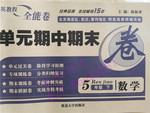
That Japan made an attempt to ______ the Diaoyu Islands has aroused the anger of all Chinese people because they have been China’s since ancient times.
|
A.occupy |
B.impress |
C.expand |
D.contact |
A
【解析】
试题分析:A占领 B 印象 C扩大 D联系
句意:本题重在理解occupy 一词含义及整个句意。同时也理解that 引导主语从句作主语。has aroused作谓语
考点:occupy一词的理解
点评:occupy一词的常用用法如下:
占(时间,空间);占用;住 Reading occupies most of my free time.阅读占去了我空闲时间的大部分。
The bathroom is occupied. 浴室有人在用。
(常与oneself连用或作被动式)使忙碌,使从事[(+in/with)]
This game will keep the children occupied.
这个游戏让孩子有得忙了。
She is occupied in writing a novel.
occupied occupied (adj.) 被占有的Occupy (v. t.) 占有occupied ( adj) 形容词


 智慧课堂密卷100分单元过关检测系列答案
智慧课堂密卷100分单元过关检测系列答案 单元期中期末卷系列答案
单元期中期末卷系列答案科目:高中英语 来源:2012-2013学年辽宁瓦房店高级中学高二上学期期中考试英语试卷(带解析) 题型:单选题
That Japan made an attempt to ______ the Diaoyu Islands has aroused the anger of all Chinese people because they have been China’s since ancient times.
| A.occupy | B.impress | C.expand | D.contact |
查看答案和解析>>
科目:高中英语 来源:2012-2013学年安徽省屯溪一中高二下学期期中考试英语试卷(带解析) 题型:阅读理解
The forces that make Japan one of the world's most earthquake-prone(有…倾向的) countries could become part of its long-term energy solution.
Water from deep below the ground at Japan's tens of thousands of hot springs could be used to produce electricity.
Although Japanese high-tech companies are leaders in geothermal(地热的) technology and export it, its use is limited in the nation.
"Japan should no doubt make use of its resources of geothermal energy," said Yoshiyasu Takefuji, a leading researcher of thermal-electric power production.
The disastrous earthquake and tsunami on March 11, 2011 caused a reaction against atomic power, which previously made up 30 percent of Japan's energy needs, and increased interest in alternative energies, which account for only 8 percent.
Artist Yoko Ono has called on Japan to explore its natural energy, following the example of Iceland which uses renewable energy for more than 80 percent of its needs.
For now, geothermal energy makes up less than 1 percent of the energy needs in Japan, which has for decades relied heavily on fossil fuels and atomic power.
The biggest problem to geothermal energy is the high initial cost of the exploration and constructing the factories.Another problem is that Japan's potentially best sites are already being developed for tourism or are located within national parks where construction is forbidden.
"We can't even dig 10cm inside national parks." said Shigeto Yamada of Fuji Electric, adding that regulations protecting nature would need to be relaxed for geothermal energy to grow.
Researcher Hideaki Matsui said, "Producing electricity using hot springs is a decades-long project.We also have to think about what to do for now as energy supplies will decrease in the short term."
The Earth Policy Institute in Washington, US, believed Japan could produce 80,000 megawatts(兆瓦)and meet more than half its electricity needs with geothermal technology.
Japanese giants such as Toshiba are already global leaders in geothermal technology, with a 70 percent market share.In 2010, Fuji Electric built the world's largest geothermal factory in New Zealand.
【小题1】What would be the best title for the text?
| A.Alternative energies in Japan |
| B.Japan thinks of geothermal energy |
| C.Japan takes the lead in geothermal technology |
| D.World's largest geothermal plant |
| A.About 8%. | B.Around 30%. | C.Below 1%. | D.Over 80%. |
| A.high technology | B.financial support |
| C.local people's help | D.a change of rules |
| A.the world's biggest geothermal plant was built by America |
| B.Japan will not export its geothermal technology |
| C.it is hard to find geothermal energy in Japan |
| D.the potential of Japan's geothermal energy is great |
查看答案和解析>>
科目:高中英语 来源:2010年普通高等学校招生全国统一考试广东卷英语模拟试题(2) 题型:阅读理解
Ⅲ 阅读(共两节。满分40分)
阅读理解(共15小题;每小题2分,满分30分)
阅读下列短文,从每题所给的A、B、C和D项中,选出最佳选项,并在答题卡上将该项涂黑。
A
Poverty is not first thing that comes to mind when you think of Japan. After all, there are no children begging on the streets in major cities here. You do not often see Japanese citizens publicly letting out their complaints over the country’s economic decline. But senior government researcher Aya Abe says Japan has the fourth-highest rate of child poverty among developed countries.
She says she sees that poverty in schools where students admit to only bathing once a week. Some cannot afford to buy pencils for class.
“They may not be on the streets begging or they may not be turning into criminals, but it’s there. It’s just that we have to open our eyes and see,” Abe said.
Abe owes the increase in child poverty to the country’s changing demographics(人口统计), struggling economy and high social security premiums(保险费). She says fewer people live in three-generation households, where the parents and grandparents work. The number of single mothers has increased. The salary for young fathers has declined with the economic downturn. Social security premiums have increased in the last 20 years, putting families on the threshold of poverty.
Abe says studies conducted by the Organization for Economic Cooperation and Development (OECD ) point to rising poverty in Japan before the global economic crises in 2008. But the Japanese government and public refused to acknowledge it until then - in part, because of the shame associated with poverty.
“It was, what should I say, very unpopular for Japanese media to say anything about Japanese poverty,” said Abe. “Even though OECD announced it and OECD Japan announced it in Japanese, it didn’t make it into the articles.”
Abe says new Prime Minister Yukio Hatoyama has taken one important step to help alleviate (减缓) the problem. Next year, his Democratic Party of Japan plans to double monthly child care allowances given to families.
But Abe wants the government to expand its financial help even more. She wants it to simplify the process to apply for public assistance and provide educational grants for students struggling to pay for tuition at high schools and colleges. The country now only offers loans.
Abe says the government must act quickly because she says the problem will only get worse in the next few years.
41. The passage is intended to _________.
A. report the result of the studies conducted by OECD
B. tell us about the increase in Japanese child poverty
C. prove that Japan is no longer a developed country
D. introduce Aya Abe, a senior government researcher
42. It seems to be hard to associate Japan with poverty because _______.
A. no children are seen begging in the streets of main cities in Japan
B. its citizens never complain about the country’s economic decline
C. it is one of the few wealthiest countries in the world
D. its government and public refused to acknowledge it
43. According to Abe, several things contribute to the rising child poverty except________.
A. high social security premiums
B. the increase of the number of single mothers
C. the decrease of the salary for young fathers
D. the expansion of three-generation households
44. Why was it unpopular for Japanese media to say anything about Japanese poverty?
A.The Japanese public didn’t think it true.
B. It was forbidden by the Japanese government.
C. The Japanese public regarded it shameful to be poor.
D. OECD Japan had already announced it in Japanese.
45. What of the following is NOT the author’s suggestion for alleviating this problem?
A. Doubling monthly child care allowances given to families.
B. Expanding government’s financial help even more.
C. Providing educational grants for poor students.
D. Simplifying the process to apply for public assistance
查看答案和解析>>
科目:高中英语 来源:江苏省盐城市2010届高三下学期第三次调研考试英语试卷 题型:阅读理解
When Toyota’s president, Akio Toyoda, apologized for the recalls that have harmed Toyota’s reputation, he talked not just about his company’s fate, but also his nation’s.
“I hope to return Toyota to profit and contribute to the revitalization of Japan,” he said.
Once a leading symbol of Japan’s rise to global economic might, Toyota has become one of the most obvious signs of its decline. And even before the recalls, Japan’s rivals(竞争对手) from South Korea and China had started overtaking Japan in key industries from semi-conductors to flat-panel televisions. And Toyota on Tuesday issued another damaging recall, this time of its popular Prius car.
“At this rate, Japan will sink into the sea,” said Masatomo Tanaka, a professor at the Institute of Technologists. “If Toyota is not healthy, then Japan is not healthy.”
Many economists and business leaders say they hope that Toyota’s trouble will be the wake – up call that Japan needs to understand that its reliance on manufacturing(制造业) and industrial exports, which served the country so well after World War II, is no longer wise.
Yukio Noguchi, a professor of finance at Waseda University in Tokyo, said Japan must finally step into a post - industrial, service-based economy — a painful shift that the United States and Great Britain underwent in the 1980s. Others said Japan should focus on high-end, high-profit products, like robots and fuel cells, rather than mass-produced goods subject to quality-control issues.
“Even Toyota can fail. Even Lexus, even Prius,” said Mr. Noguchi. “Our world-leading manufacturing industry may no longer world-leading. This has a strong impact on the national psyche.”
According to the Cabinet Office, manufacturing accounted for 22% of Japan’s entire economic output in 2008, down from 28% in 1990. however, manufacturing’s share of the economy still remains far above the level of 12% in the US. And few economists or journalists here advocate abrupt shifting. Rather, the feeling is that Japan needs to find a new balance by replacing its traditional industries with more information technology and software industries in which it is weak.
Yet this shift will be hard for Japan, where many policy makers and experts still seem to cling to the old model of heavy industries and consumer goods. If Japan can pull it off, it could serve as a model for other export – dependent Asian nations, which will also eventually face the same choice.
“I hope that Toyota will change our way of looking at our economy,” Mr Noguchi said. “We cannot survive if we continue to stick to the old type of industries.”
67.Since the Second World War, have been contributing much to Japan’s economy.
A.high – end and high – profit products like robots and fuel cells
B.manufacturing and industrial exports
C.information technology and software industries
D.industries from semi – conductors to panel – televisions
68.Which of the following statements is TRUE according to the passage above?
A.Few Japanese economists advocate a rapid shift into a service – based economy.
B.Most journalists in Japan advocate an abrupt change into a post – industrial economy.
C.Many economists hold that it is too early for Japan to shift into a service – based economy.
D.No Japanese reporters think it high time for Japan to step into a post – industrial economy.
69.The underlined part “cling to” probably means in the passage.
A.hold on to B.keep up with C.turn to D.pick up
70.From the passage we know the way out for Japan to get itself free from its decline consists in
.
A.keeping up its reliance on manufacturing
B.continuing to focus on its industrial export
C.speeding up its shift into a post – industrial economy
D.increasing its manufacturing
查看答案和解析>>
湖北省互联网违法和不良信息举报平台 | 网上有害信息举报专区 | 电信诈骗举报专区 | 涉历史虚无主义有害信息举报专区 | 涉企侵权举报专区
违法和不良信息举报电话:027-86699610 举报邮箱:58377363@163.com